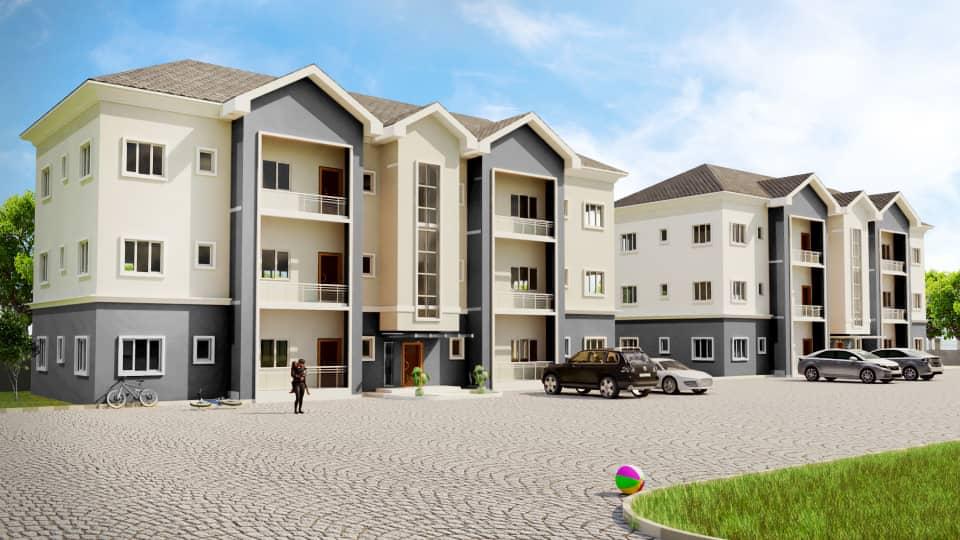
Rising costs shifts investment interest to low-income housing market
Investor and buyer-interest in Nigeria’s housing market is, increasingly, shifting from high-income to low-come segment of the market in response to rising costs in the country, Bismarck Rewane, CEO, Financial Derivatives Company, has said.
Rewane who spoke recently at the July edition of his monthly Breakfast Session at the Lagos Business School, added that this shift is also driven by large market size and strong demand coming predominantly from students and young professionals.
He noted that demand for residential real estate would continue to outpace supply, meaning that home seekers would continue to be at the mercy of product suppliers who, on account of mounting inflation, are hiking the rent charged on their houses.
With the inflation, which peaked at 18.6 percent in June, cost of housing has gone up due to unfavourable exchange rates on imported building materials. This means that fewer people can afford to buy homes which increases demand for rental housing.
Nigeria is said to be an active rental market where about 80 percent of the citizens are renters, spending a good percentage of their income paying house rent.
What the current surge in rental costs has done is to compel city dwellers to downsize or downgrade to more affordable apartments to stave off harsh economic condition, especially cost of living.
BusinessDay checks show that between January 2021 and June 2022, rent in major Nigerian cities such as Lagos, Abuja, and Port Harcourt has risen by over 50 per cent. In some parts of Lagos, for instance, rents range from N700, 000 for two-bedroom and N1 million for three-bedroom. This includes areas that were initially considered as cheap.
It was discovered too that within this period, a three-bedroom apartment that was previously rented at N400, 000 rose to N600, 000, rent for two-bedroom increased from N350, 000 to N550, 000 while one bedroom, which was initially N250, 000 jumped to 300,000 in less sought-after locations.
Similarly, a mini-flat went for between N450, 000 and N750, 000; a two-bedroom flat has gone up as high as N600, 000 to N1.1million, three-bedroom apartment in highbrow locations of Lagos and Abuja go for between N1.2million and N4 million.
This surge in rent is the reason many city residents, who feel they must reside within the city centre, are downgrading their accommodation needs. “This also is the reason investment interest is favouring small size developments, and investors are responding to market reality,” Rewane explained.
Juliet Umeh, who lives in Surulere and works in Victoria Island, shared her experiences with this reporter. “I used to live in a two-bedroom apartment here. I was paying N850,000 for this apartment, but early this year, I had to relocate to a one-bedroom self-contained in the same area where I am now paying N450,000. I am there with my two children,” she said.
Another resident, Emmanuel Anayo, a lawyer that lives in Yaba, but works with a law firm in Lagos Island, told BusinessDay that he had to come down to two-bedroom apartment for which he pays N700,000 per annum as against a three-bedroom apartment that he was living before with his family of five and was paying N1.2 million per annum.
MKO Balogun, CEO, Global PFI, confirmed what is happening in the rental market to BusinessDay, saying that today, out of every 10 home seekers in Nigerian, especially Lagos, eight are looking for small size apartment and these are people reviewing their accommodation needs.
“On account of the rising costs and general economic condition in the country, what used to be the rent for three-bedroom in Lekki and Lagos Mainland-lkeja and Surulere, is what renters pay for two-bedroom apartment at the moment,” Balogun noted.
“Besides, high rent, a lot of people are relocating abroad. There are instances where an entire family relocates leaving only the man who now decides to downsize his accommodation needs, sometimes from three to two-bedroom apartment or two to one-bedroom apartment,” he added.
He observed that there were also cases of people whose children have left for schooling abroad, stressing that families in that class would want to save cost on extra rooms and use it to take care of other pressing needs.
“That is the trend and it is a reflection of the economic situation in the country. If your rent was about N1.2 million for a two-bedroom apartment two years ago, you are probably going to be paying about N2 million or N2. 5 million now,” he noted.
Kayode Ogunji, chairman, Faculty of Estate Agency and Marketing, Nigerian Institution of Estate Surveyors and Valuers (NIESV), was quoted as saying recently that there was pressure on smaller apartments like self-contained, one-room apartment and two-bedroom as against the demand for three/four bedrooms, duplexes and other big houses.
Ogunji said that having bigger apartments nowadays was considered an invitation for unwanted guests, coupled with the fact that people, who have been laid off from work, have had to cut their coat according to their cloth.
“As a result of that, people now move to smaller units. Secondly, because companies monetise their housing at the beginning of the year, once workers collect the money in bulk, they believe it is a wise economic decision to go to areas such as Mowe, lbafo, Ikorodu, Badagry and outskirts of Lagos-Ibadan Expressway to get land at cheaper rates and develop one or two rooms to live in and continue to develop it gradually.
That is why Mondays are always a busy day along that axis with heavy traffic due to people coming to work in the city centres,” he said.
Source:Businessday.ng
Similar Topics
The Lagos State Government has commenced the demolition of illegal structures within the Lekki Free...
6 days ago Read MoreNigeria’s recently enacted Tax Act of 2025 (NTA 2025), which becomes effective on January 1,...
6 days ago Read MoreMember States of the United Nations Human Settlements Programme (UN-Habitat) have endorsed a new...
a month ago Read MoreNigeria Enters a New Tax Era Come January 2026, Nigeria’s property market will experience a...
a month ago Read MoreImproved Security and Diaspora Capital Drive Rebound The housing sector in Nigeria’s...
a month ago Read MoreThe Lagos State Government has announced that night-time repair works will take place on Ozumba...
2 months ago Read MoreThe Federal Government has suspended all previously approved, pending, and prospective applications...
3 months ago Read MoreThe Federal Government has successfully mobilised more than N70 billion in private capital...
4 months ago Read MoreThe Lagos State Government, through the Lagos State Physical Planning Permit Authority (LASPPPA),...
6 months ago Read MoreThe Federal Government has expanded the Abuja-Kaduna-Kano Road project to incorporate a direct...
6 months ago Read MoreThe Federal Capital Territory Administration (FCTA) has taken possession of Wadata Plaza, the...
6 months ago Read MoreDefaulters on FCT ground rent now have 14 days grace to pay up what they owe the FCT Administration...
6 months ago Read MoreUnprofessional practices by estate agents in major cities are significantly influencing the spike...
7 months ago Read MoreA Real estate development firm, Lifecard International Investment Company, has revealed that many...
7 months ago Read MoreDespite a fall in investment volumes from the 2021 peak, there is an ongoing desire for property...
7 months ago Read MoreThe Lagos State government has advised the leadership of the Nigerian Institution of Estate...
7 months ago Read MoreReal estate market dynamics such as construction cost, land, finance, government policies and taxes...
7 months ago Read MoreEvent Set to Celebrate Managers Who Shape Careers and Drive Organizational Growth Business...
8 months ago Read MoreGlobal Leaders to Converge in Lagos for Landmark Event Driving Urban Innovation and...
8 months ago Read MoreIn a bold move to redefine affordable luxury housing, Nigerian real estate giant Gtext Holdings has...
9 months ago Read More
















